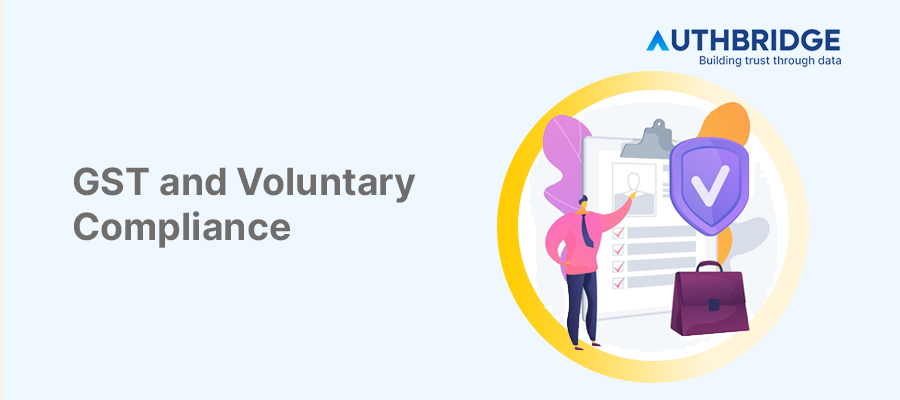Introduction To GST And Voluntary Compliance

Introduction to GST and Voluntary Compliance
The Concept of GST
The Goods and Services Tax (GST) has been a transformative reform for the Indian economy, streamlining the tax structure by replacing multiple indirect taxes with a single, unified system. Introduced on July 1, 2017, GST aimed to eliminate the cascading effect of taxes, widen the tax base and simplify the tax compliance mechanism through technological integration. This comprehensive tax system covers all stages of the supply chain, with the credit of taxes paid at previous stages available as a set-off for payment at the next stage, thereby ensuring that the end consumer bears only the GST charged by the last dealer in the supply chain.
Importance of Voluntary Compliance in GST
Voluntary compliance plays a pivotal role in the success of the GST regime. It not only helps in reducing the compliance burden on taxpayers but also ensures a steady revenue stream for the government. By encouraging taxpayers to voluntarily adhere to tax laws, declare their taxable income, and pay their taxes on time, the GST framework promotes a culture of compliance and integrity. Voluntary compliance is facilitated through simplified procedures, educational initiatives, and incentives that make it easier and more beneficial for taxpayers to comply with their tax obligations willingly.
Mechanisms Encouraging Voluntary Compliance
Simplified Compliance Procedures
The GST regime has introduced several measures to simplify compliance procedures, making it easier for taxpayers to fulfill their obligations. These include a unified portal for tax filings, the introduction of quarterly returns for small and medium enterprises (SMEs), and the option for electronic payments and filings. Such measures not only reduce the time and resources required for compliance but also make the process more transparent and accessible.
Incentives for Voluntary Payment and Compliance
The GST framework provides various incentives to encourage voluntary compliance, including provisions for no penalty or lesser penalty if the dues are cleared within specified timelines. For instance, if the tax amount, along with interest, is paid before the issuance of notice, no penalty is charged, and no notice is issued. This policy incentivizes taxpayers to rectify their mistakes promptly, contributing to a culture of honesty and voluntary compliance.
Impact of Voluntary Compliance on the GST Ecosystem
Reduction in Compliance Burden
Voluntary compliance significantly reduces the compliance burden on taxpayers and the administrative burden on tax authorities. By simplifying procedures and offering incentives for voluntary compliance, the GST system has made it easier for businesses to comply with tax regulations, thereby reducing the time and resources spent on tax compliance. This efficiency is critical for SMEs, which constitute a substantial portion of the Indian economy.
Impact on Tax Collections and Revenue
Voluntary compliance has a direct positive impact on tax collections and government revenue. When taxpayers comply with tax laws voluntarily, it ensures a steady and predictable stream of revenue for the government, which can be used for public welfare and infrastructure development. Increased compliance also broadens the tax base, as more taxpayers fulfill their tax obligations, further enhancing revenue collections.
The Role of Technology in Enhancing GST Compliance
E-invoicing and Its Benefits
E-invoicing, one of the key technological advancements under the GST regime, automates the tax invoice generation process, ensuring that invoices are standardized and GST-compliant. This system facilitates the real-time tracking of transactions, reduces the chances of errors, and simplifies the return filing process by auto-populating invoice details in tax returns. E-invoicing has significantly contributed to enhancing compliance, reducing tax evasion, and making the filing process more efficient.
Online Dispute Resolution and Refunds
The GST framework includes mechanisms for online dispute resolution and streamlined refund processes, which encourage voluntary compliance by addressing taxpayers' grievances efficiently. The fast-tracking of refunds and the resolution of disputes through online platforms ensure that taxpayers' issues are resolved promptly, enhancing trust in the tax system and encouraging a culture of compliance.
Future Directions for GST and Voluntary Compliance
Continuing Efforts to Simplify Compliance
The GST Council continues to explore ways to further simplify the compliance process, making it more taxpayer-friendly. These efforts include simplifying return filing procedures, expanding the use of technology in tax administration, and introducing more incentives for voluntary compliance. Such initiatives aim to make the GST regime more accessible, reducing the compliance burden on taxpayers and encouraging voluntary compliance.
The Role of GST Council in Promoting Voluntary Compliance
The GST Council plays a critical role in promoting voluntary compliance through policy decisions, simplification of tax procedures, and the introduction of taxpayer-friendly measures. By continuously assessing the challenges faced by taxpayers and making necessary adjustments to the GST framework, the Council ensures that the tax regime remains responsive to the needs of the business community and conducive to voluntary compliance.
Conclusion
Voluntary compliance is the cornerstone of a successful GST regime. By simplifying compliance procedures, offering incentives, and leveraging technology, the GST framework encourages taxpayers to comply with their tax obligations willingly. This approach not only reduces the compliance burden but also enhances revenue collections, contributing to the overall efficiency and effectiveness of the GST system in India. As the GST regime evolves, continuous efforts to promote voluntary compliance will remain crucial in ensuring its long-term success and sustainability.
Meta- The benefits of voluntary GST compliance for businesses and the economy
Category

Abhinandan Banerjee
(Associate Manager - Marketing)
Abhinandan is a dynamic Product and Content Marketer, boasting over seven years of experience in crafting impactful marketing strategies across diverse environments. Known for his strategic insights, he propels digital growth and boosts brand visibility by transforming complex ideas into compelling content that inspires action.



